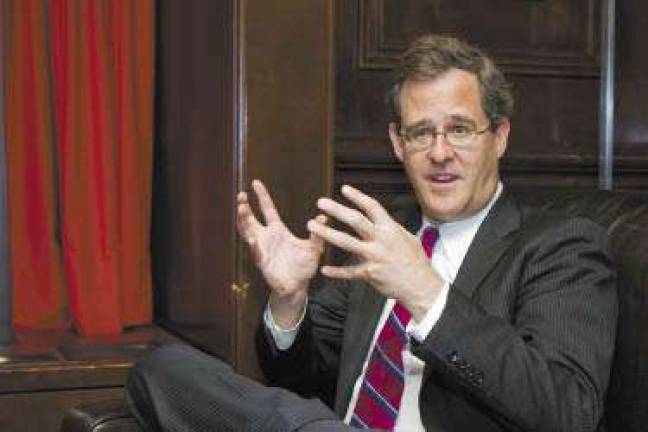Is Politics Cyclical?

If history repeats itself, the city is due for a big shift in leadership
Historians often point out that political movements work in cycles. After a few terms of Republican presidents, for example, we often see a shift to a Democratic President, like when Obama followed Bush junior and Bill Clinton defeated Bush senior (who succeeded Ronald Reagan).
Voters, particularly in a recession, yearn for change and hope that a shift to the other party will bring more prosperity.
Generally, it is true that people vote with their pocketbooks, and with the global economic stagnation, we've seen more tumult and turnover in leadership around the world in recent years.
Here in New York City, we're also witnessing the pendulum swing back quite dramatically to a likely populist and self-styled "progressive" mayor, who differs significantly in tone, style and priorities from his two predecessors, Mike Bloomberg and Rudy Giuliani.
After 20 years of Republican (albeit of the Liberal variety) mayors, we now are likely to have a very-left-of-center Democrat, Bill de Blasio, running our city.
After 20 years of proactive policing and a record drop in all crime categories, many New Yorkers feel that the high price of diminished civil liberties outweighs the decrease in crime statistics. Time will tell whether de Blasio and his new police commissioner will be able to balance a new approach to policing (specifically with a deemphasis on "stop and frisk") and still keep New York the safest large city in the country.
The middle class and members of New York's labor unions will finally have a friend and champion in de Blasio. But here, again, he will have to walk a fine line between being fair with city workers salary increases and the need to assure New York's business community that our already large tax burden will not increase in the next four years.
Was this pendulum shift to a left-of-center mayor inevitable because of the cycles of history? I'll leave that deep question to the historians and pundits who have a broader view of political cycles.
But recall that in 1993 the major issue in the city was crime, and that's why former crusading U.S. Attorney Rudy Giuliani defeated David Dinkins. In 2001, it was stability and the need to calm Wall Street in the wake of 9/11 that led to the election of billionaire Mike Bloomberg.
In 2013, it seems that income inequality, the controversial policing policy of "stop and frisk" and a general yearning for change will propel likely winner Bill de Blasio to City Hall.
Where will the pendulum swing over the next 4 to 8 years as de Blasio attempts to put his stamp on the city?
Stay tuned. It should be an interesting ride.
Tom Allon, the president of City and State, NY, is a former Liberal Party-backed candidate for Mayor. Questions or comments? Tallon@cityandstateny.com.